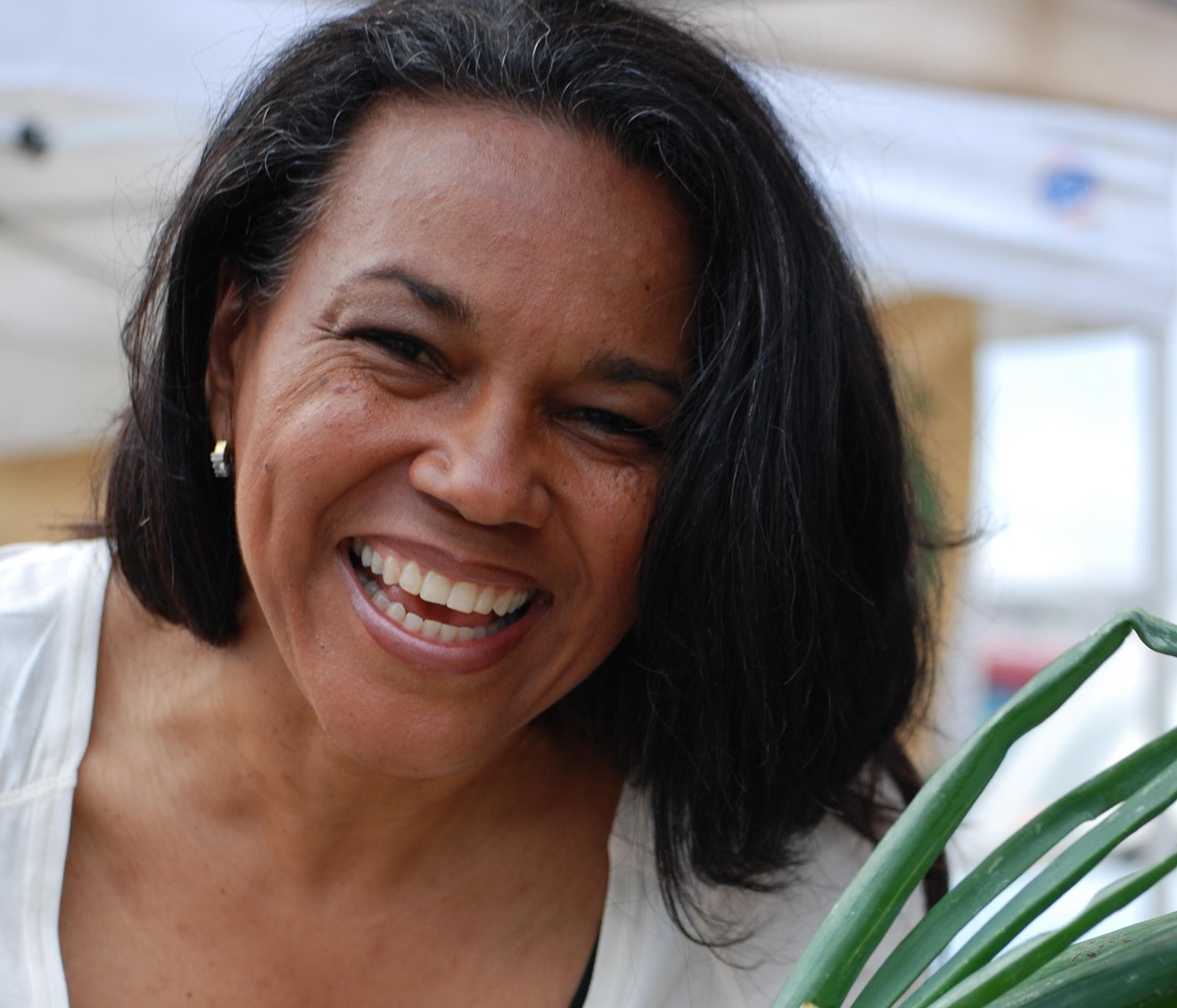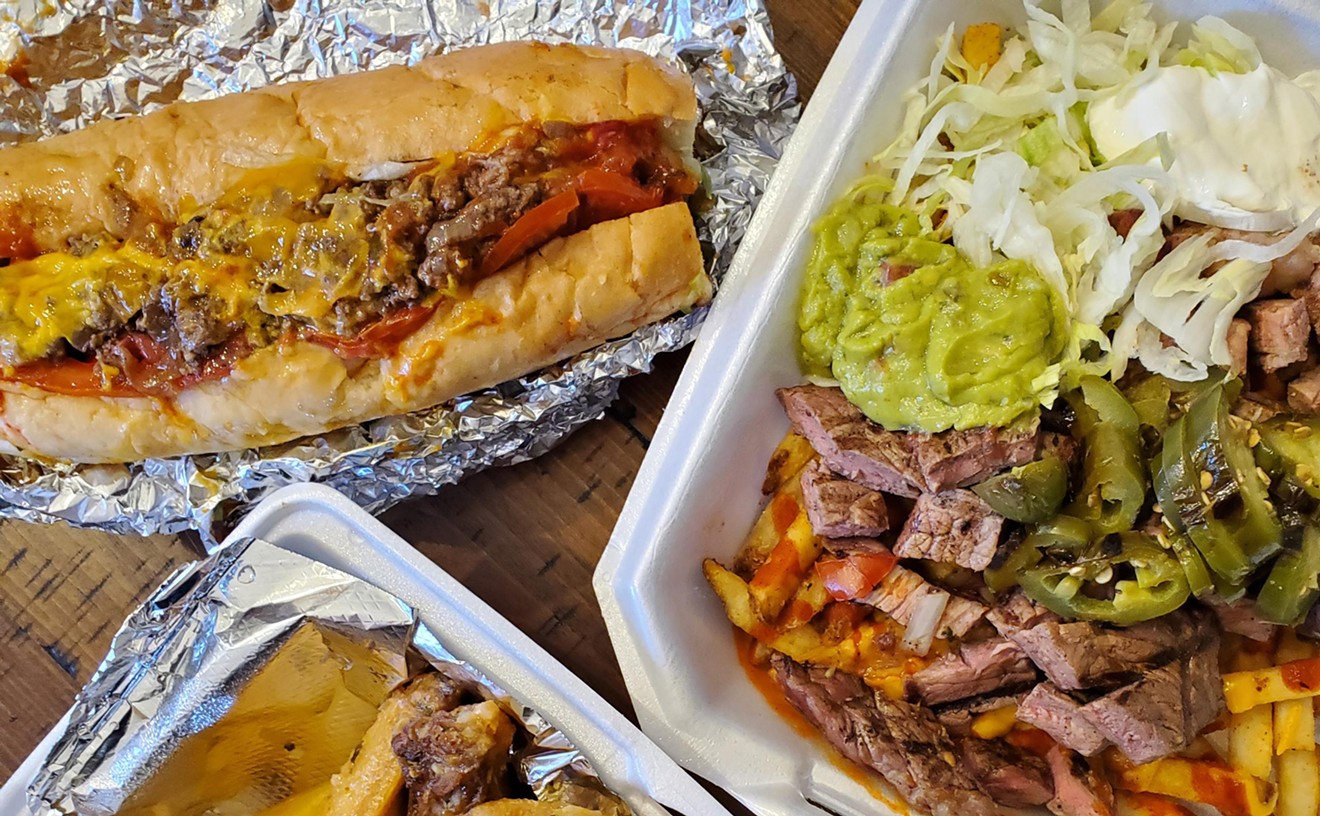Toni Tipton-Martin’s James Beard Award-winning book The Jemima Code (University of Texas Press, 2015) examines 150 cookbooks written by black women, starting in 1827. The work highlights the contributions of black women to the American culinary canon, focusing on cooks who have been all but erased from history. In the process, it calls into question long-held stereotypes about the place that black women held in American society and provides fodder for discussions of regionality, appropriation and patriarchy’s effect on our star-chef-fueled culinary culture. Tipton-Martin relocated to Denver a year ago, and she’s begun research on a second book that will deal in part with black cooks in the American West. She’ll be speaking about her work at the Community College of Aurora on Wednesday, February 22; in advance of that appearance, she sat down with us to talk about the question that prompted her project, the bro-izing of the modern kitchen, and why it’s important that we broaden the definition of African-American cooking.
Westword: You’ve talked before about The Jemima Code being a re-examination of stereotypes — like Aunt Jemima — and a way to give voice to forgotten characters, particularly black women, in American culinary history. Could you elaborate a bit on how you began probing that subject?
Toni Tipton-Martin: I’m a food journalist…. I had done some writing for the L.A. Times about African-American women and cooks, which refreshed my memory as to how few books by African-American women were on the shelves. The message was distorted, and not being delivered. There were lots of women’s voices, but no black women’s voices. And those that were included were in recipe collections as part of the “other.” There was this idea that Southern food was created by Europeans, using Native American ingredients and African slave labor. Even with my limited understanding of culinary history, that just did not make sense to me. If you give a recipe to two different people and they use the same ingredients, the dishes are going to come out slightly different. It didn’t make sense to me that these women would be disregarded as to have had no influence on that pot except for stirring mindlessly. I wanted to learn more about those myths, and how much of that was really true or not. So I started collecting cookbooks. The people I wanted to interview as essential to the story were gone — and as a reporter, I needed facts. I thought cookbooks would be a good way to do some research. Before I knew it, I had over 300.
Is there a particular story that affirmed this project and work?
I guess it was a reprint of Malinda Russell’s books from 1866; archivists knew that I was toying around with this idea and invited me to the reissue of this rare manuscript. That helped me understand the academic value of what I was collecting. I wasn’t sure how the material would translate into mainstream population. It was initially a coffee-table book about the women; I was listening for women’s stories to emerge from the pages of the cookbook. But I began to see that there’s not a lot of autobiographical information in these books. A book trying to trace the value of these women was going to be difficult.
What about the specific use of Aunt Jemima and the idea of re-examining the mammy stereotype?
In the process of looking for real identities, I began thinking about the mammy stereotype. It translates onto products as a food trademark, a corporate trademark. She is portrayed as the invincible mammy character. She has a certain set of physical characteristics and a particular demeanor. A lot of my research at the beginning was about the mammy character. There are peculiar expressions of appreciation to these women, but in the cookbooks, they were being disparaged. I was alone at the time in trying to sort out this contradictory message, but a lot of scholars have started to do work on the mammy character. Someone suggested I read white women’s diaries and look at how they portrayed their relationship. I kept going further and further back in history. In the mid-twentieth century, there were disparaging images of these women. In the early twentieth century, the mammy contributed to the hospitality of the South. In each generation of cookbooks by white women, I was looking for the real relationship between these women. I found a passage in which one former slave woman says to a white woman about her husband, “He’s as much your master as he is mine.” There was this image of the white women as demure and fragile. White woman couldn’t have planted 100 acres of oats and practiced arts on the piazza. I learned a lot about patriarchy.
Like what?
Like that there’s still residue of that patriarchy today — like the Time magazine cover that had all the top chefs but no women included. Southern history has been cruel to African-American women, but it’s been just as disparaging to white women. Opportunities for women are limited when it comes to being an executive chef. There’s this bro-izing of the kitchen, and that’s true across the country. I was invited to participate in a workshop at Radcliffe about how to read historic cookbooks. We worked with fourteenth-century European handwritten manuscripts. These were cookbooks written by men, who were writing to help the dimwitted women who were going to poison families because of their poor hygiene and cooking skills. They passed that on, and it continued to roll forward, to open conversations about appropriation. We need to disentangle ourselves from that supremacy, from the idea that one group needs to stand on another group in order to feel taller.
Could you talk a bit more about the idea of cultural appropriation as it relates to your work? This has obviously been a major component of the culinary conversation over the last couple of years, and it strikes me that it seems especially to revolve around Southern cooking and whether white Southerners should benefit from and profit off of what are traditionally black recipes.
There are a number of us who are doing a lot of thinking and talking and challenging one another about this idea of ownership and appropriation. The space we continue to come back to is this patriarchy — and war-mongering words like “ownership” and “territory” — that are used to describe food. The South is a region. It’s composed of people responding through their food to different climates, to terroir. So there are multiple variables that go into overgeneralizing Southernness. A group of us is trying to get more people seeing the South in layers, as a mixture of cuisines rather than this one thing that belongs to a group of people and excludes another group of people. The subject of appropriation is primarily associated with the South, but that’s because African-American cooking is associated with the South. Equal to my passion for reconciliation is my passion to unencumber African-Americans from the label of what it means to cook African-American. My next book contains recipes of food we cook when resources permit. This is middle-class food, the food some African-American people cooked at work.
Let’s talk a bit more about your next book. What are you trying to accomplish there?
I’m exploring the two strains of people. I’m following the lines of haves and have-nots. The have-nots are really making soul food. So I’m looking at what it means to be practicing classic culinary techniques all day, but then live like have-nots. Fusion cooking is a dominant aspect of African-American cookery.
People had exposure to asparagus, to whole leg of lamb; they didn’t always have to find poverty ingredients. African-Americans did not arrive here as immigrants. We did not come with a culture that we can refer back to. When we describe techniques and ingredients available in Africa, that doesn’t speak to the fusion of what African-Americans do without those ingredients. That food became embedded in Southern cuisine. It presents a challenge on loosening the grip of “ownership” on Southern food as code for white food. And it looks at a lot of conversations about the West. I’m eager to get into the archives here and look at the Native American exchanges, and what happened on the frontier. There were slave cooks who came this way who were cooks on the range. There were cowboy cooks — and I’m still trying to figure out whether “cowboy” means black or not. “Boy” means black almost everywhere. There are coastal influences. There were a lot of Mexican ingredients in Southern California black cooking, and Mexican influence in things like hot tamales from the Mississippi Delta. I am trying to break the code that was used to contain African-American cooking in a very narrowly defined box — to set future generations free to write about and cook and pursue careers in whatever direction they like without feeling embattled that all we can produce is food from lesser ingredients.... Once we come to grips with the fact that African-Americans can be represented by more than soul food, that will give African-Americans the freedom to launch all kinds of projects, inspire them to come into the restaurant industry and to eat more healthfully.
That’s a pretty ambitious followup to The Jemima Code, and it seems to continue conversations that this book really catalyzed.
The work is in transition; a year and a half later, the book is out of stock again. New audiences keep encountering it, and older audiences are digging deeper into the content. I’m trying to bring life to real people who can be role models for us all, with an agenda of community-building. This is the cornerstone of building that community. When I start my talks, I congratulate anyone who’s willing to attend a talk or buy a book that clearly has some challenge to the reader. It’s going to challenge your established thoughts.
[
{
"name": "Air - MediumRectangle - Inline Content - Mobile Display Size",
"component": "12017618",
"insertPoint": "2",
"requiredCountToDisplay": "2"
},{
"name": "Editor Picks",
"component": "17242653",
"insertPoint": "4",
"requiredCountToDisplay": "1"
},{
"name": "Inline Links",
"component": "18838239",
"insertPoint": "8th",
"startingPoint": 8,
"requiredCountToDisplay": "7",
"maxInsertions": 25
},{
"name": "Air - MediumRectangle - Combo - Inline Content",
"component": "17261320",
"insertPoint": "8th",
"startingPoint": 8,
"requiredCountToDisplay": "7",
"maxInsertions": 25
},{
"name": "Inline Links",
"component": "18838239",
"insertPoint": "8th",
"startingPoint": 12,
"requiredCountToDisplay": "11",
"maxInsertions": 25
},{
"name": "Air - Leaderboard Tower - Combo - Inline Content",
"component": "17261321",
"insertPoint": "8th",
"startingPoint": 12,
"requiredCountToDisplay": "11",
"maxInsertions": 25
}
]











